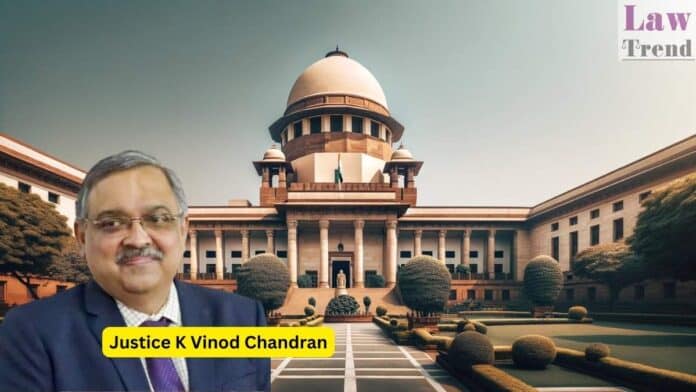The Supreme Court on Monday witnessed Justice K Vinod Chandran recusing himself from hearing a plea that challenges the appointment of Professor Naima Khatoon as Vice-Chancellor of Aligarh Muslim University (AMU), the first woman to hold the post in the institution’s history.
The matter came up before a bench headed by Chief Justice of India B.R. Gavai, along with Justices Chandran and N.V. Anjaria. The appeal, filed by Muzaffar Uruj Rabbani, contests the Allahabad High Court’s order that upheld Khatoon’s appointment.
During the proceedings, Justice Chandran voluntarily offered to step aside, citing his previous role as a university chancellor in a comparable selection process. “I was the chancellor of CNLU when I selected Faizan Mustafa… so I can recuse myself from the hearing,” he observed.
While Solicitor General Tushar Mehta expressed confidence in Justice Chandran’s impartiality, the Chief Justice directed that the matter be listed before a different bench. “Let my brother (Justice Chandran) decide. List this case before a bench to which Justice Chandran is not a part of,” the CJI said.
At the outset, senior advocate Kapil Sibal, appearing for the petitioner, strongly questioned the credibility of the selection process. “If this is the way Vice-Chancellors are appointed, I shudder to think what will happen in future,” he remarked, arguing that Khatoon’s victory hinged on two disputed votes, including one cast by the outgoing Vice-Chancellor. “She would have secured only six votes if those two are excluded,” he submitted.
Countering the arguments, Additional Solicitor General Aishwarya Bhati highlighted the significance of Khatoon’s appointment. “This is part selection and part election. The High Court may not have agreed with our election argument but it did uphold her appointment,” she said, while noting that related appointments, such as that of the Provost, were not challenged by the petitioner.
The Solicitor General dismissed the objections as speculative, describing them as based on “apprehended bias.” However, the CJI underscored the principle that fairness must guide such processes. “Ideally the Vice-Chancellor should have refrained from participating in the voting process. Even in collegium decisions, if such a situation arises, we recuse ourselves,” the CJI remarked.
The petition will now be listed before a fresh bench for further hearing.




